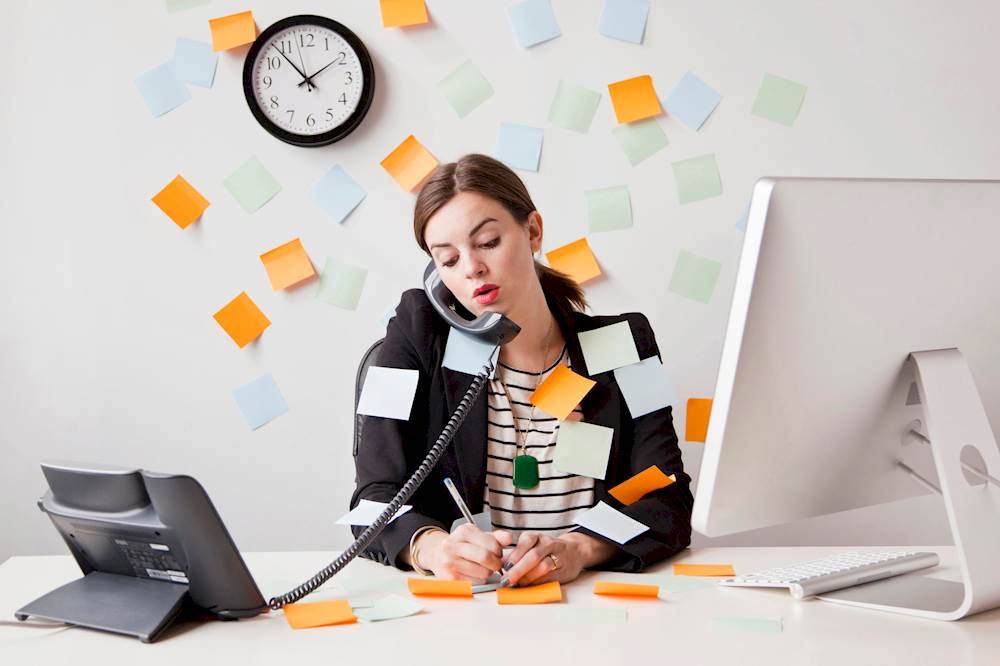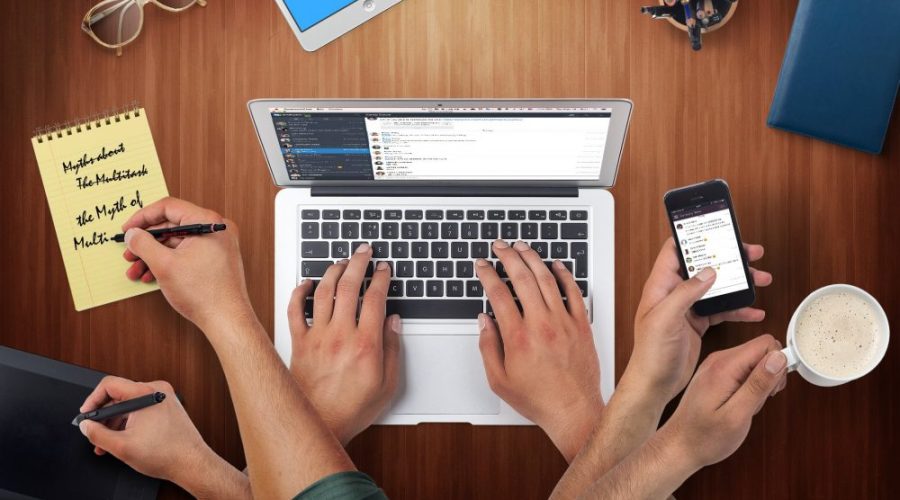Professionals are constantly looking for new ways to increase productivity in the workplace. Multitasking, however, seems to be the wrong way: let’s debunk some myths about it
To be or not to be multitasking to increase productivity? This is the dilemma of many professionals, but certainly not the science that, on the basis of several studies, explains how harmful it is at a professional level to do more things at the same time. Even if sending text messages while talking to another person or reading e-mails in the middle of a meeting makes you think about buying time, according to a study reported in the Journal of Experimental Psychology, those who do more actions together reduce their yield.
This opinion was shared and supported by the report prepared by a Psychiatric Institute in collaboration with BBC News, which explains how harmful the effects of multitasking are, especially in an era like ours, where a large part of the population strongly depends on technology: for those responsible for the investigation, this sort of rampant “infomania” affecting a growing number of people, risks in the long run to provoke a reduction of 10 points in the IQ of the interested parties.
Although we can believe that, by getting used to performing different activities at the same time, they improve individual performance, a recent research by the National Academy of Sciences supports the exact opposite: anyone who tries to maximize productivity by trying to do more things at the same time (in the hope of gaining advantages from the practice), in addition to significantly reducing personal and professional performance, loses concentration and is more prone to error.

Effects in the professional field of multitasking
But at a company level, what aspects negatively affects multitasking?
- Quality of work: performing two activities at a time does not pay proper attention to one or the other and you risk making mistakes;
- Attention: managing different tasks together is more distracted and less attentive to details;
- Productivity: dedicating itself to different tasks at the same time is less efficient from the point of view of performance.
Increase productivity by avoiding multitasking
Since, according to what science says, doing more things at once is wrong, then try to understand how to maximize performance and optimize the time available by avoiding multitasking.
#1- Organize the day
In the early morning write a list of priorities on a sheet, remembering to reserve the first positions to the most urgent activities and establishing a period of execution for each point (respecting the deadlines self-imposed avoid delays and complaints of customers).
#2- Limit the time spent reading e-mails
Instead of answering all the emails as soon as they arrive in the e-mail box, devote only two breakpoints a day (one in the morning and one in the afternoon) to the management of these messages: in this way you avoid the constant loss of concentration and you manage to satisfy every request in reasonable time.
#3- Avoid access to leisure and distraction websites
Considering the fact that 83% of professionals cannot imitate the time spent within Social Networks, blogs and other such sites, in order to avoid unnecessary waste of precious hours, it is advisable to install in your computer applications that block access to these platforms, so as to be able to dedicate the whole day to work issues.
#4- Take breaks every 90 minutes
Recently it was discovered that the most effective way to achieve results in the professional field, is to make short breaks every 90 minutes: an hour and a half of activity followed by a small break would ensure the right compromise to maintain high levels of concentration.
These are the recent considerations of science on multitasking: a widespread practice to limit as much as possible to stimulate productivity.

